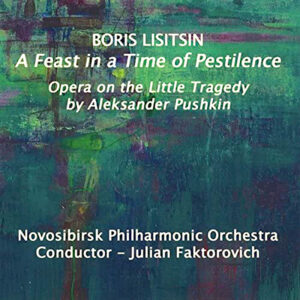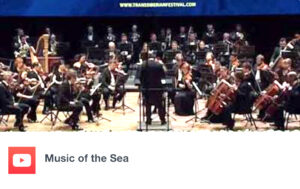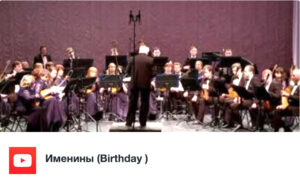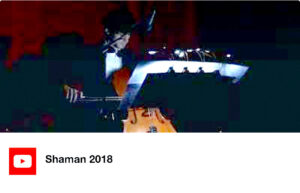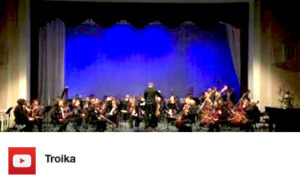Boris Lisitsin
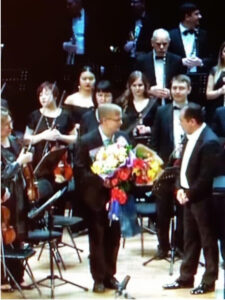
Boris Lisitsin
You may know Boris as the quiet gardener or the dancer in the meadow, but it’s a large step from growing beautiful dahlias to accepting bouquets of flowers onstage at the Novosibirsk Academic Symphony Orchestra at the world premiere of his symphonic fantasy Music of the Sea.
From an interview
by Anila Manning
Bet You Didn’t Know This About Boris Lisitsin
Boris, you grew up in Siberia — just how did you become a composer?
Everything happened by accident. I was studying at a music college, opened the door to the neighboring concert hall out of curiosity, and heard something that shocked me: Requiem by Verdi. From that moment to this day, music has not let me go. I suddenly decided that I wanted to compose myself — and sat down to write … a symphony.
He studied with a composer and wrote a one-act opera, A Feast During the Plague, which was filmed for TV, was hired to write many more pieces and then an opera-ballet The Snow Queen … and then the USSR collapsed.
Curious detail: The USSR paid composers, and the highest fee was for writing an opera. So I was given 2,500 rubles ($5,000 US), and the second part of the fee was to be paid after the New Year. But on the first morning of the new 1992, when I, like all other citizens, came to the store, I saw that sour cream had become 30 times more expensive, and the remaining money would be enough only for a cup of coffee. So my wife, Nadia, and I came to America and she won the green-card lottery, and we moved to San Francisco, then San Rafael, and in 2003 to Marin Valley.
You know, I noticed that when I just write — for the theater or on commission — I write music. But when, under the influence of an external factor that makes a serious impression on me, I open a certain channel of communication with something higher, and I begin to write the music that comes from there. And this is Music with a capital letter. In this case, a factor that had a huge impact on me was a visit to the North Pacific Ocean, where I saw the majestic, sometimes wild power of nature, suddenly turning into a completely quiet state, soon replaced by another rampage … just like life.
My new composition is already in progress. If Music of the Sea was written in a nontonal language using linearity and minimalism, then the next work is based on unconventional sounds and playing techniques, but without losing contact with the listener. Classical instruments need to speak in a unique language. I am always looking for my own musical language, discovering new harmonies.
Composers can work as much as they like — and they should, so they can make themselves good tools, but the music will be just boring until something “pops.” A composer is a tool that God comes through, and then it gets interesting. Life is fun!
You can listen to Boris’s dramatic music at https://www.youtube.com/@BorisLs25/videos
Janet Bogardus’s contemporary, expressive painting graces the cover of his latest CD
A Feast in a Time of Pestilence
Music for symphony orchestra
Composer — Boris Lisitsin
Conductor — Tugan Sokhiev
Novosibirsk Philharmonic Orchestra
Suite for Russian folk orchestra
Composer — Boris Lisitsin
Conductor — Vladimir Gusev
Novosibirsk Philharmonic Russian Folk Orchestra
Opera on the Little Tragedy
by Alexander Pushkin
Composer — Boris Lisitsin
Conductor — Julian Faktorovich
Novosibirsk Philharmonic Orchestra
Music for symphony orchestra
Composer — Boris Lisitsin
Conductor — Rustam Dilmoukhametov
Novosibirsk Symphony Orchestra
